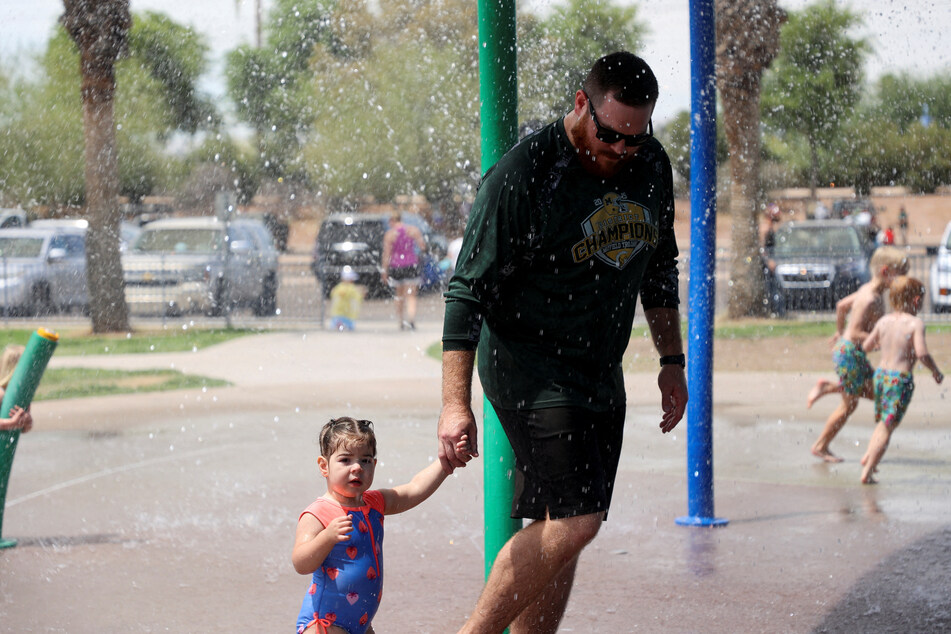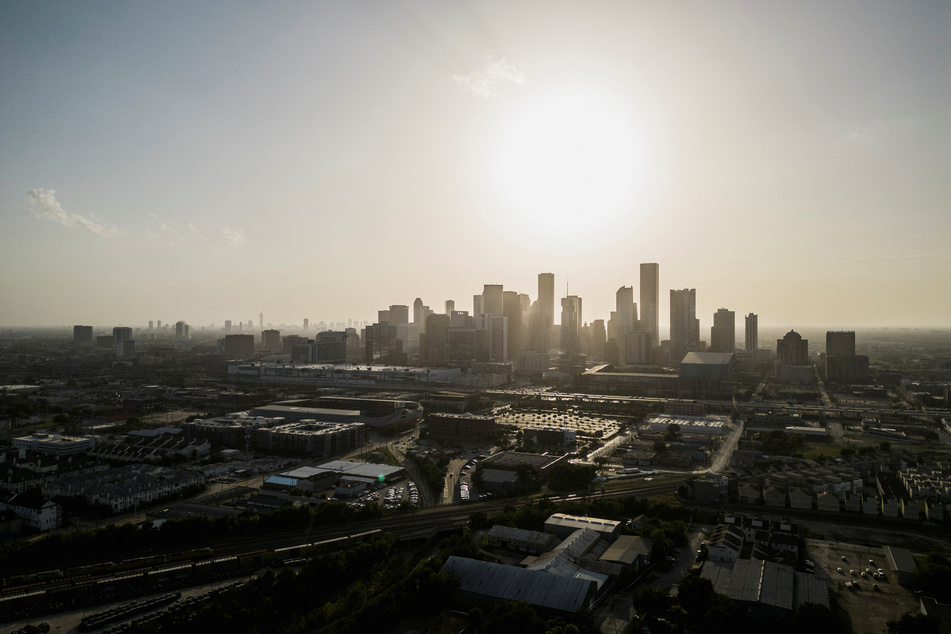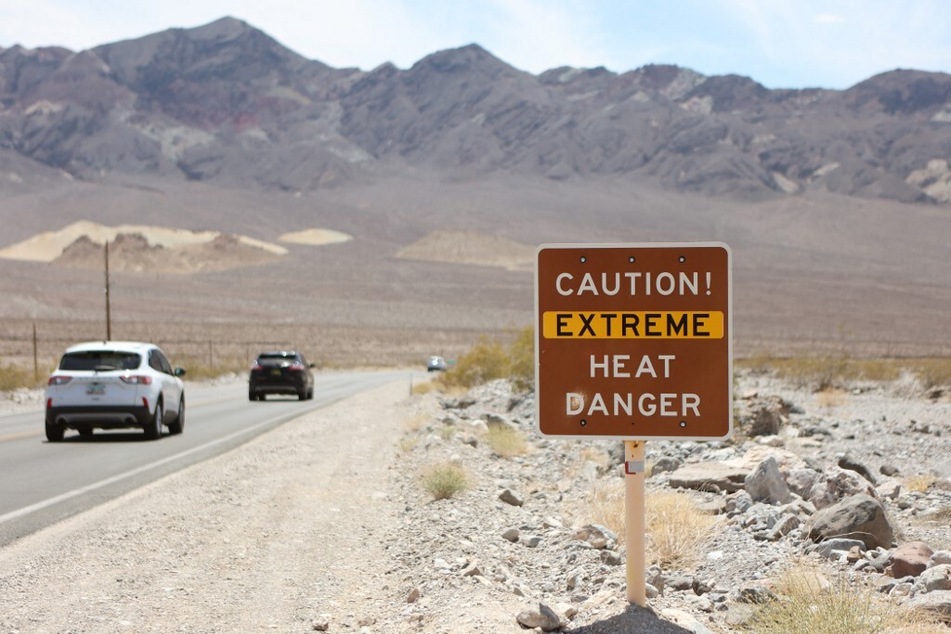US West and South continue to bake under extended heat wave: "It's hell"
Swaths of the United States home to more than 80 million people were under heat warnings or advisories Sunday, as relentless, record-breaking temperatures continued to bake western and southern states.

The National Weather Service (NWS) warned of "a widespread and oppressive heat wave" in parts of the Southwest, western Gulf Coast, and southern Florida, with sizzling temperatures carrying into the coming week raising health risks for millions.
In Arizona, the state capital Phoenix recorded its 17th straight day above 109 degrees Fahrenheit, as temperatures hit 113°F on Sunday afternoon.
The sprawling city, home to over 1.6 million people, is under an Excessive Heat Warning until Wednesday evening, according to the NWS, which said Sunday morning's low of 94°F equaled its warmest low temperature on record.
"We're used to 110, 112 (degrees Fahrenheit) ... But not the streaks," Nancy Leonard, a 64-year-old retiree from the nearby suburb of Peoria, told AFP.
Leonard said that due to the intense heat she spends only a few minutes outside during the morning, to walk her dog, and then later in the evening once the sun sets.
"You just have to adapt," she said.
Volunteers around Phoenix have been organized to direct residents to cooling centers and distribute bottles of water and hats, but program head David Hondula told the local ABC station that its three-days-per-week schedule is "clearly... not enough."
In Utah's capital Salt Lake City, the temperature soared to 106°F on Sunday, beating the previous record of 103°F for the date.
The stationary high pressure system covering much of the US southwest, known as a heat dome, brought temperatures in some parts of Nevada and southern California to above 115°F.
Americans suffer under record temperatures: "It's hell"

By Sunday afternoon, California's famous Death Valley, one of the hottest places on Earth, had reached the near-record temperature of 126°F.
Tourists visited the national park to get a glimpse of what the NWS warned would be "life-threatening daytime heat" set to last until Tuesday night.
Visitor Eliana Luna told broadcaster MSNBC on Sunday the heat felt like a "burning sensation" on her body.
"The heat, you can feel it dripping through the back, all the way down," she said.
The NWS has said heat is the leading weather-related killer in the United States and urged Americans to take the risk seriously.
"In total, from South Florida and the Gulf Coast to the Southwest, over 80 million people remain under either an Excessive Heat Warning or Heat Advisory as of early this morning," the NWS said in a Sunday morning bulletin.
Authorities have been sounding the alarm for days, advising people to steer clear of outdoor activities in the daytime and to avoid dehydration, which can quickly become fatal in such temperatures.
In Miami, the NWS on Sunday issued its first-ever Excessive Heat Warning for the region, in effect until 7:00 PM, as heat and humidity mixed to create a "feels-like" temperature expected to hit 112°F.
"It's hell, it's hot, it's crazy hot," Miami visitor Lola Cee told AFP along the famed Ocean Boulevard.
"I've never experienced this heat before," she added.
Residents of the sprawling Texas city of Houston have been asked to conserve electricity from 2:00 PM to 10:00 PM Saturday through Monday, in an attempt to mitigate pressure on the electricity grid.
Heat dome described as "not typical"

Heat waves are occurring more often and more intensely in major US cities, according to the federal Environmental Protection Agency, with a frequency of six per year during the 2010s and 2020s compared to two per year during the 1960s.
"This heat wave is NOT typical desert heat," the NWS Las Vegas office tweeted Thursday, specifying that "its long duration, extreme daytime temperatures, & warm nights" were unusual.
In Canada, which is suffering from warm temperatures combined with months of below-average rainfall, the amount of land burned by devastating wildfires so far in 2023 climbed to an all-time high of 24.7 million acres on Saturday.
"We find ourselves this year with figures that are worse than our most pessimistic scenarios," Yan Boulanger, a researcher at Canada's natural resources ministry, told AFP.
On Sunday, a firefighter died while working in Canada's Northwest Territories, authorities announced, only days after a 19-year-old woman lost her life working to extinguish a fire in nearby British Columbia.
While it can be hard to attribute a particular weather event to climate change, scientists insist human-linked global warming is responsible for the multiplication and intensification of heat waves.
Flooding has also ravaged parts of the northeastern US in recent weeks.
Officials in eastern Pennsylvania's Bucks County reported on Sunday that five people had died and two children were missing after a storm the day before unleashed up to seven inches of rain in one hour, causing flash flooding that swept away vehicles.
Cover photo: REUTERS
